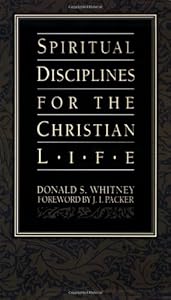Takeaway for this chapter: If we are serious about our Christianity we must be intentional about scripture intake. Reading is good, but we also need to think about and put what we read into practice.
Purchase Links: Paperback, Kindle Edition, Audible.com Audiobook, christianaudio.com MP3 Audiobook
I have been slowly working through Spiritual Disciplines for the Christian Life. It was this book that really inspired me to do the read again series because many books of spiritual weight really need multiple readings. This book requires multiple readings not because it is so dense or difficult to understand, but because it is so hard to put what it says into practice.
So in order to encourage myself to read slowly and actually put into practice what I am reading, I am going to split my Read Again posts on this book into thematic sections. I am going to cheat on this post and declare it all as Bible Intake. In reality there are a couple different practices that are included as part of Bible Intake. One is obviously bible reading. There are a number of very good suggestions with bible reading, but they boil down to: be regular in your reading and have a plan.
The second part of Bible Intake is the processing. There are two different disciplines that Whitney discusses as that are part of bible processing. One is bible memorization and the other is meditation. Both are things that I do not do well. When I originally read this book I tried to pick a verse from each day and think about and memorize it. That did not last long. But I did memorize a couple verses. I think because we have bibles everywhere, on our phones, our kindles, our computers, our ipads, etc., we think we just look up the bible verses and not worry about memorizing them. But Whitney rightly says that memorizing them is fundamentally different type of intake to knowing a verse exists and being able to look it up. My church is almost finished with a sermon series on finding God’s will in our lives. The ability to find God’s will for our life is directly related to our ability to communicate with God and know God’s character. Bible reading first, then memory and meditation are an essential part of learning God’s character and participating with the Holy Spirit in hearing from God.
The second part of processing is meditation. Meditation is a strange word because the historical Christian meaning is no longer is the dominant meaning. Meditation in an eastern sense means to remove ourselves from conscious thought or put ourselves in a mystical trance. But meditation in a Christian sense means that we devote time and effort to contemplating a small thought or bible passage. Usually meditation would be about a verse or a short phrase. Meditation can be more involved, but at least we should take an idea from our reading and think about how it can be put into practice in our daily life. If scripture reading does not involve moving us to change, if we are not praying that the Holy Spirit speak to us in our bible reading, if we are not open to seeing scripture as a higher authority that we really can only understand in relation to our broader community of faith and the help of the Holy Spirit then we are missing something when we read scripture.
This past year I have been listening to a daily audio bible (The Daily Message – CD Version, the audible.com version I have is no longer available for some reason, christianaudio.com version on sale for $7.49 until Dec 3). I process differently through audio than I do through print so I thought it would be good practice to listen the whole way through the bible. I usually listen as I clean the kitchen every day. But I think I should also sync my listening to my reading and try to listen and read the same passage every day. So at the end of this audio bible, I will switch translations and sync up my bible reading and listening.
I also think I will try to get back to a memory routine, but a more reasonable one.
